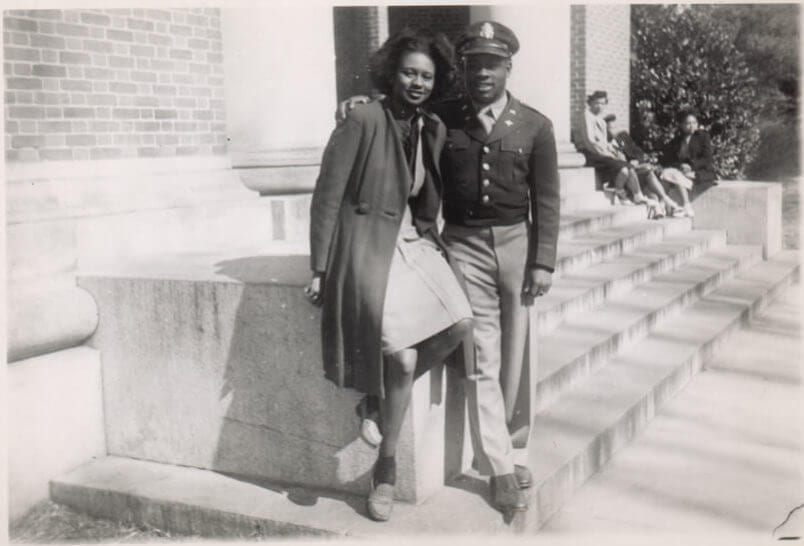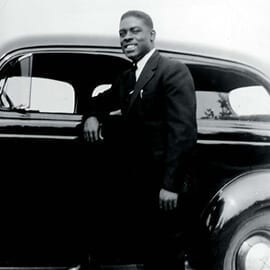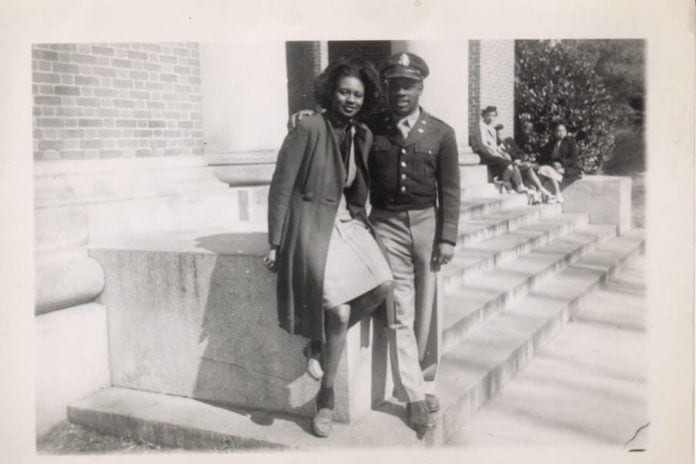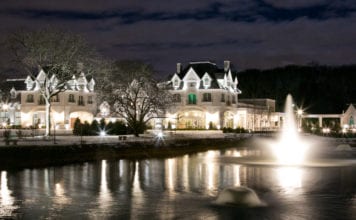William Neal Brown was born in Warrenton, Georgia on February 24, 1919. Brown’s grandfather was a former slave who began a career as a farmer in Georgia, in 1863, after being freed. His father followed in his footsteps before eventually moving the family north to Aliquippa, Pennsylvania in 1924 to work as a steel worker for Jones & Laughlin Steel Corporation.
 Brown’s mother was of Native American decent, and her family lived on a reservation in Warrenton. William Neal Brown was the oldest sibling, with one brother and four sisters. His father worked long hours most days at the steel mill to provide for his family, and Brown was very appreciative. He loved school and friendly competition, and was also active in his church. Brown’s mother died when he was still young, and his father was left to take care of all six children.
Brown’s mother was of Native American decent, and her family lived on a reservation in Warrenton. William Neal Brown was the oldest sibling, with one brother and four sisters. His father worked long hours most days at the steel mill to provide for his family, and Brown was very appreciative. He loved school and friendly competition, and was also active in his church. Brown’s mother died when he was still young, and his father was left to take care of all six children.
[bibblio style=”bib–row-3 bib–hover bib–white-label bib–font-arial bib–default bib–size-16 bib–shine” query_string_params=”eyJ1dG1fc291cmNlIjoiQmliYmxpbyIsInV0bV9tZWRpdW0iOiJNb2R1bGUiLCJ1dG1fY2FtcGFpZ24iOiJSZWNvbW1lbmRhdGlvbnMifQ==” recommendation_type=”optimised”]
What Makes William Neal Brown Tick
Brown cites “being number one” as a major motivation in his life, whether it was in his studies or when playing football and basketball for his high school. He and six of his close friends strove to be teachers; that competitive nature never faded as they all tried to out-do each other.
Because of his race, Brown was at a disadvantage. He was brilliant, personable and very well-liked, but he faced obstacles in school due solely to his skin color. When it came time to pick the student who would give the Valedictorian address during graduation, he was denied because he was black, and he was nearly omitted from the program altogether for his own graduation.
 After graduation, Brown enrolled at Hampton University in Virginia as a work-year student, where he had a double-major in English and history. He earned his degree from Hampton University, but soon after his graduation from college – when he learned of the attack on the United States Naval Base at Pearl Harbor – Brown volunteered to fight and joined the Tuskegee Airmen in 1942.
After graduation, Brown enrolled at Hampton University in Virginia as a work-year student, where he had a double-major in English and history. He earned his degree from Hampton University, but soon after his graduation from college – when he learned of the attack on the United States Naval Base at Pearl Harbor – Brown volunteered to fight and joined the Tuskegee Airmen in 1942.
Life After World War II
After World War II, Brown was discharged from the U.S. Air Force to aid Englewood, NJ as a social worker. As he worked in Englewood, he earned a master’s degree from Columbia University in 1950. Shortly thereafter, he attained his doctorate from City University of New York.
Brown went on to teach human growth and development at the Rutgers School of Social Work for 33 years. He eventually retired in 1989 and relocated to Short Hills in Millburn Township. Twenty years later, on April 17, 2009, William Neal Brown died at the age of 90, leaving behind an inspiring legacy of hard work, dedication and competitive spirit.
To continue reading more Black History NJ stories, click here to get the complete series.
Hero (Top) Feature Image: © Rutgers.edu / Website
Additional Images (in Order) Courtesy:
William Neal Brown (via columbia.edu) / Website












